Far-right extremism in Germany is no longer hidden at the edges of society. Neo-Nazi groups march through towns, gather in public spaces, and run for office. Their presence is open and organized, showing a direct clash between democracy and fascism, between memory and denial. Symbols of hate return under new names, while ideas once considered taboo are now spoken in political debates. Step by step, intolerance moves into everyday life, on the streets, in schools, and in local communities. What was once rare now appears familiar.
The Quiet Rise documents this shift. It shows both the public face of extremism and the quieter ways it spreads: gestures, spaces, and silences that make it part of daily reality. The story points to the growing divide between democratic values and exclusionary ideologies. This work stands as both evidence and warning. Fascism does not reappear overnight, it returns slowly, as society looks away. The danger lies not only in those who march, but in those who remain silent.
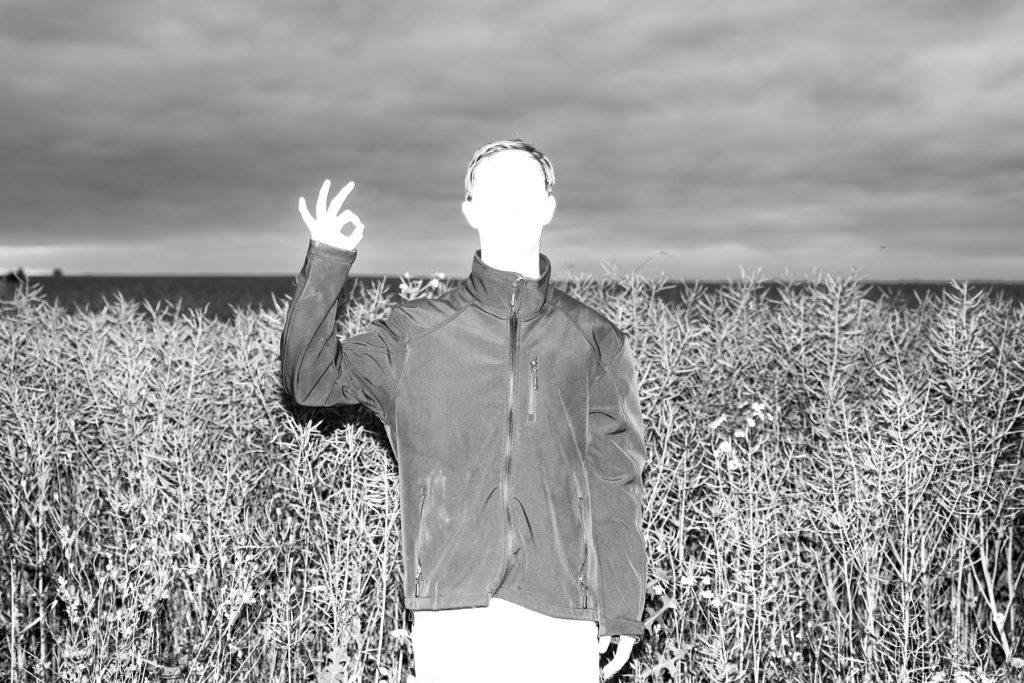
The Quiet Rise
Tobias name changed 24 a member of Der III Weg poses in a field near Bad Doberan Germany flashing a hand gesture widely associated with white supremacist ideology forming the letters W and P for White Power Once dismissed as a trolling meme the sign has become a coded symbol within far-right networks I m worried for the future he said These globalists leftists and foreigners are destroying my once-great country I couldn t just sit and watch it being doomed He described his activism as a form of resistance That s why I decided to fight and I m doing my best to help others join our cause Enough is enough German authorities classify Der III Weg as an extremist group that promotes neo-Nazi ideology and has been expanding its presence in eastern Germany
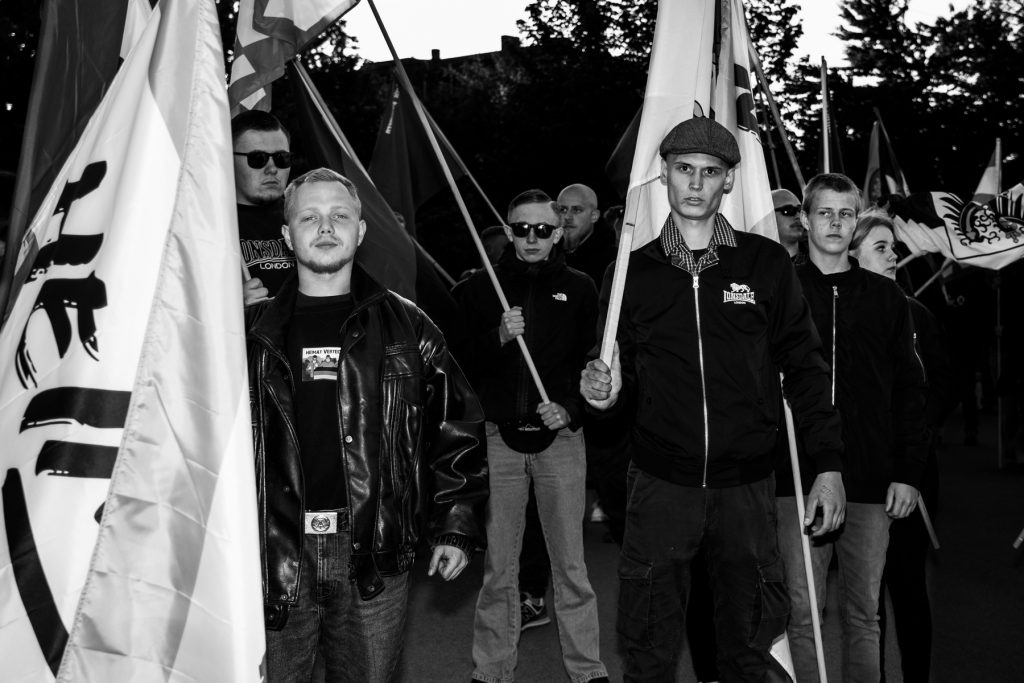
The Quiet Rise
Young men from the Junge Nationalistic the youth organization of Germany s far-right NPD party gather at a nationalist rally in Demmin Germany The group is classified as extremist by German intelligence services and promotes ethnonationalist and anti-democratic ideologies
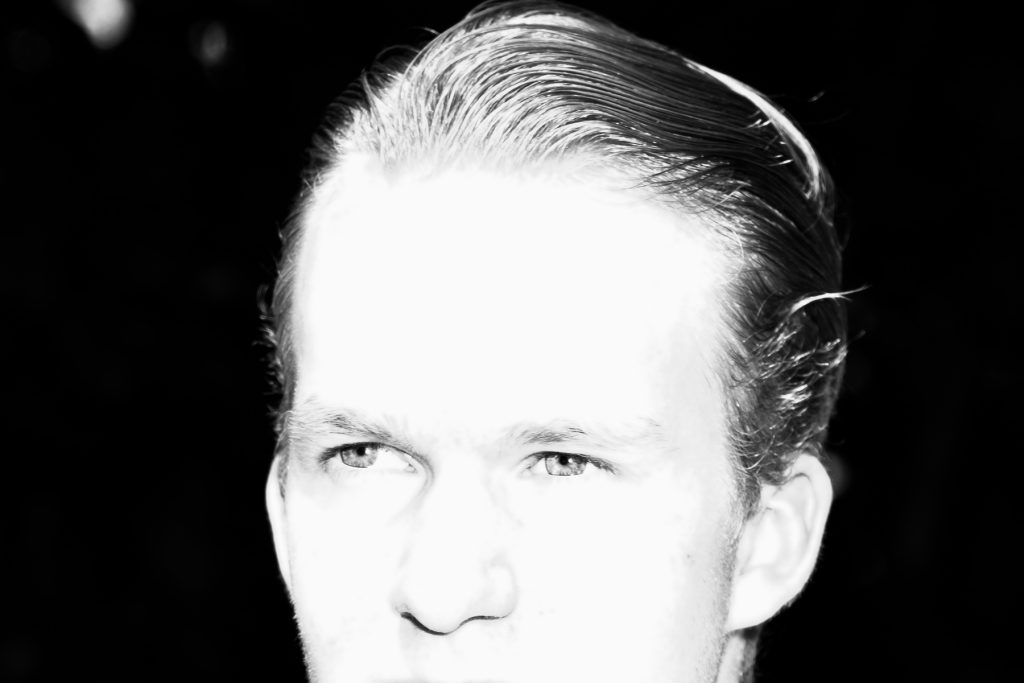
The Quiet Rise
Lois Wagner a leading member of the Junge Nationalisten JN stands as a vocal proponent of ethnonationalist ideology He claims his facial features prove his Aryan heritage identifying himself as part of the so-called Nordic race Germany should be for Germans he said That s our right to preserve who we are If we don t stand up now we ll lose everything our ancestors built The JN youth wing of the far-right Nationaldemokratische Partei Deutschlands NPD has been monitored by German intelligence for extremist activities including the promotion of racial superiority and anti-democratic values
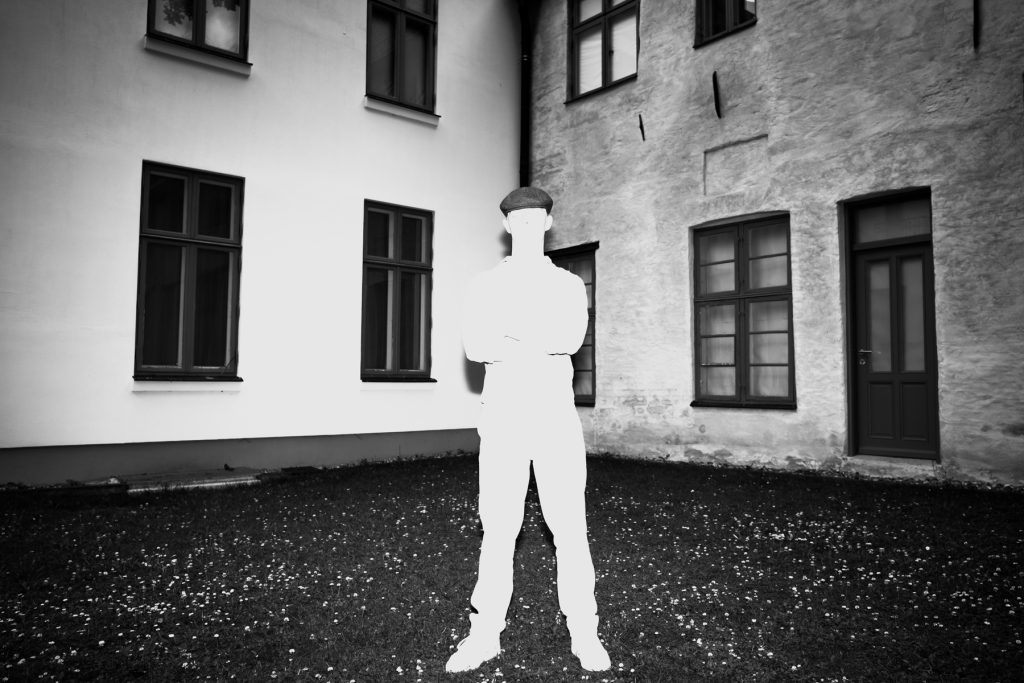
The Quiet Rise
Christian name changed 21 a member of the Junge Nationalisten JN poses for a portrait in Dersden Germany The JN youth wing of the far-right NPD is monitored by German intelligence for promoting neo-Nazi ideology and anti-constitutional agendas We re not extremists we re realists Christian said Multiculturalism has failed Crime is rising and Germans are becoming strangers in their own cities He described joining the JN as a way to reclaim national pride and prepare for what he calls a cultural fight If talking doesn t work we re ready to take serious action My comrades and I won t just stand by while our country is dismantled
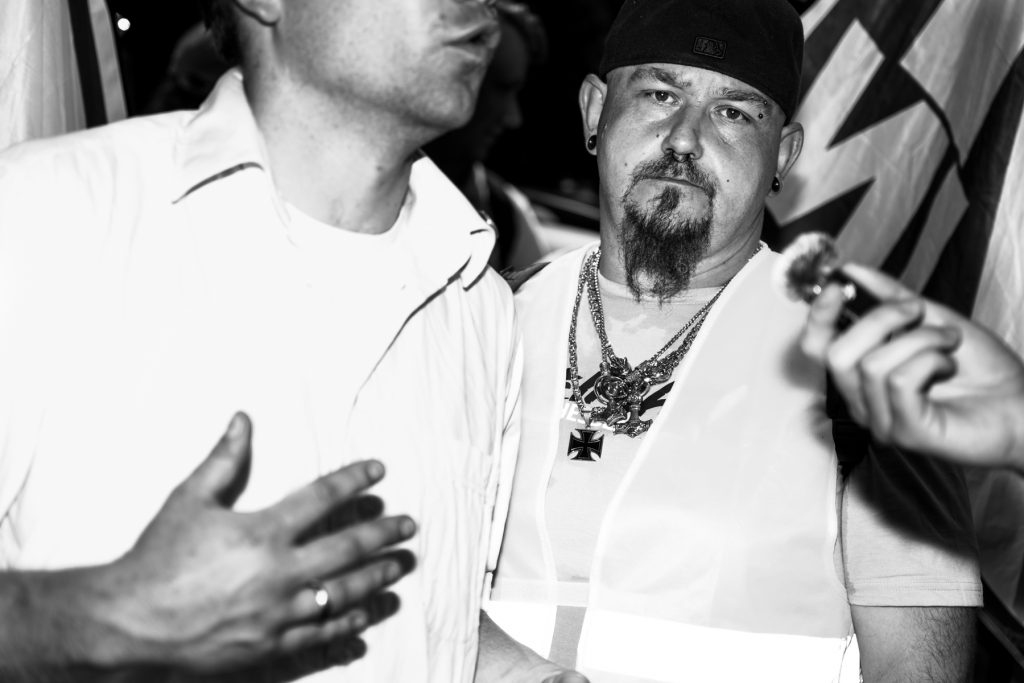
The Quiet Rise
Members of the Junge Nationalisten JN the youth wing of the far-right NPD attend a nationalist rally in Wittenberg Germany Several wore symbols such as the Iron Cross and Thor s hammer which are commonly seen in far-right and neo-Nazi subcultures We re not afraid to show who we are anymore said one of the participants We re the true sons of this land and we re taking it back The JN has been under surveillance for promoting neo-Nazi ideology including racial superiority and anti-constitutional agendas
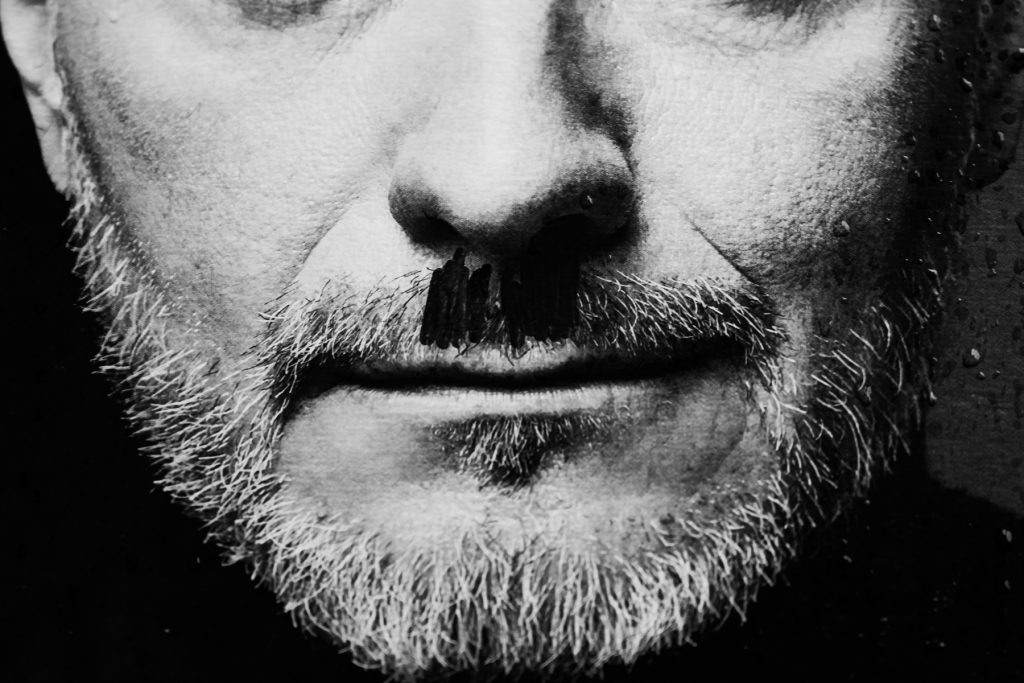
The Quiet Rise
Election poster of Christian Lindner member of the FDP the Free Democratic Party A right-wing political group Across Germany symbols and ideologies once thought buried are creeping back into public life carried by a growing far-right movement emboldened by nationalism and resentment
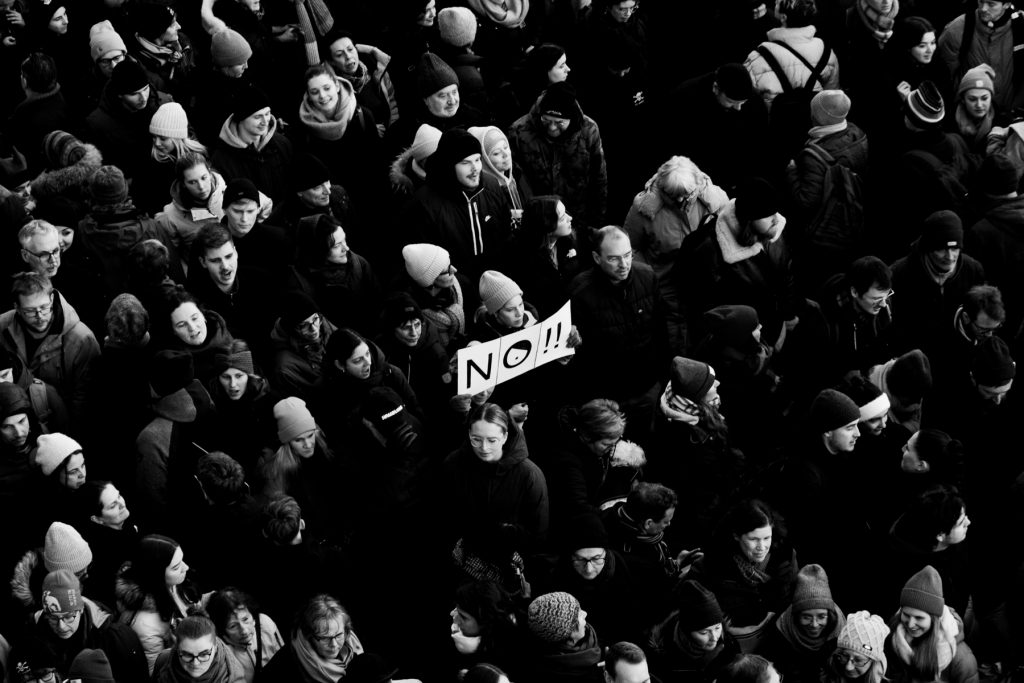
The Quiet Rise
Protesters gather for an anti-AfD rally in Hamburg Germany Tens of thousands took to the streets across Germany in early 2024 to oppose the rising popularity of the far-right Alternative f r Deutschland party In Hamburg demonstrators filled the city center with handmade signs chants and silence alike NO reads one sign held up amid the dense crowd a simple defiant message echoing a growing resistance to nationalist rhetoric and xenophobia
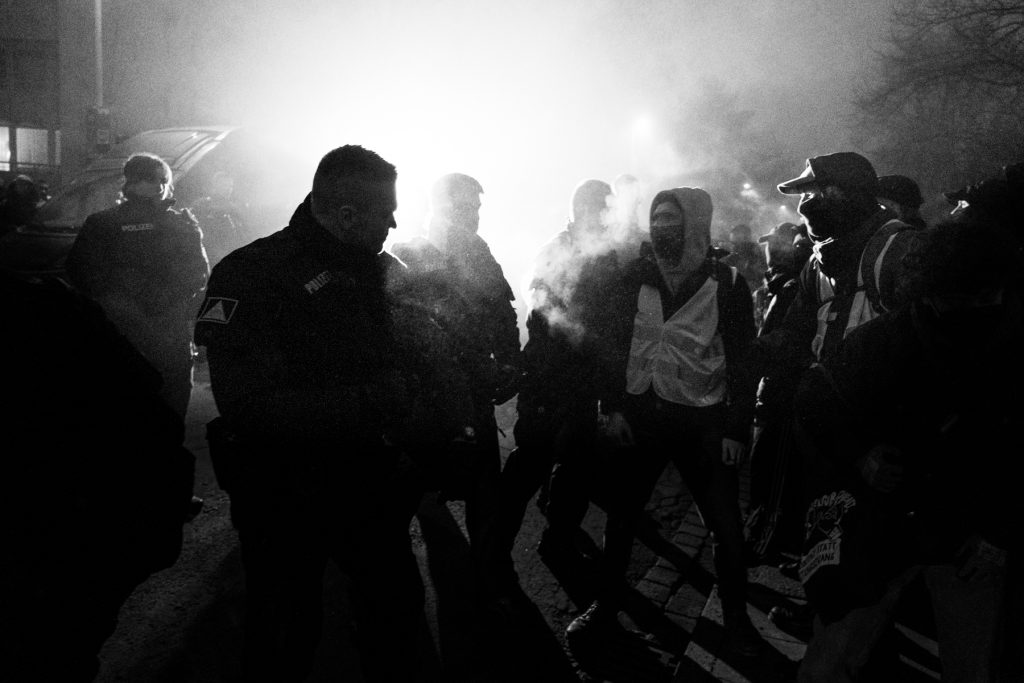
The Quiet Rise
Anti-fascist demonstrators attempt to break through a police line during a protest in Hannover Germany The group was trying to reach a neo-Nazi gathering taking place nearby Clashes between opposing groups have intensified in recent months reflecting a growing polarization within German society
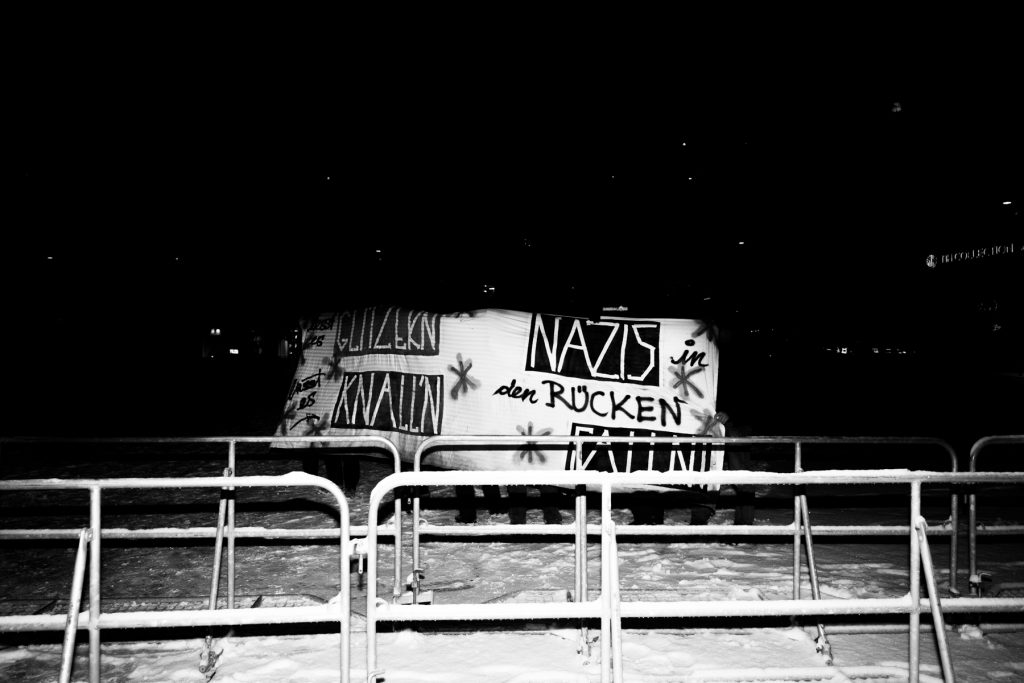
The Quiet Rise
A protest banner reads Nazis in den R cken knallen Shoot Nazis in the back during an anti-fascist demonstration in Dresden Germany Left-wing groups across the country regularly attempt to disrupt or block neo-Nazi marches though whether these efforts succeed in stopping the broader rise of the far right remains uncertain
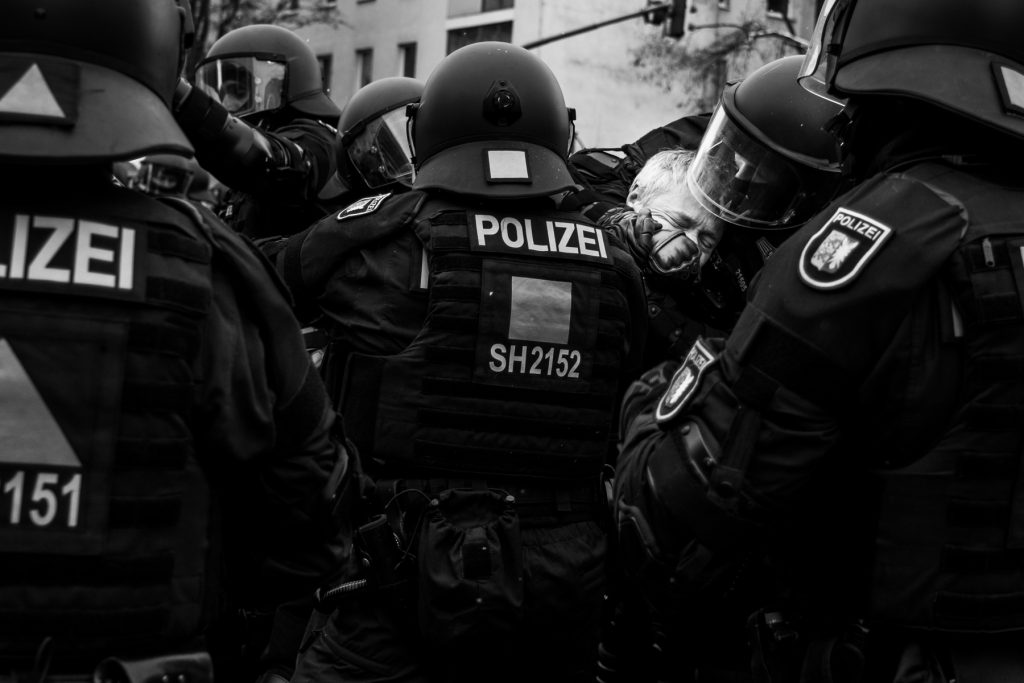
The Quiet Rise
A citizen is detained by police during a counter-demonstration against a neo-Nazi march in Dresden Germany Critics have accused law enforcement of using disproportionate force against anti-fascist protesters while allowing far-right events to proceed under protection
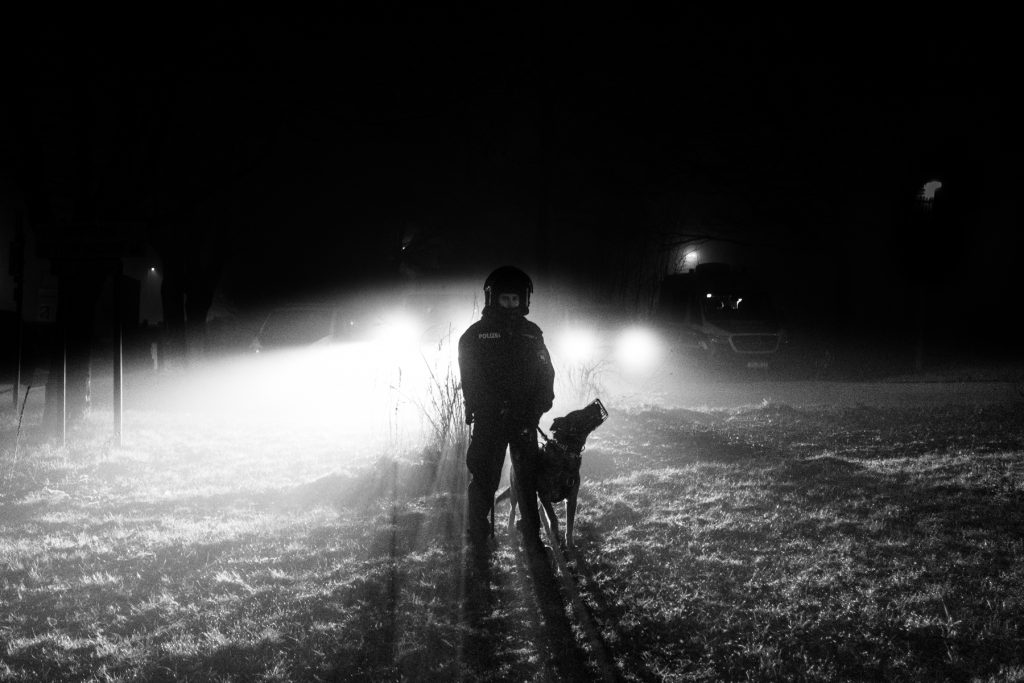
The Quiet Rise
German police with dogs block a road during a night operation at a counter-demonstration against a far-right gathering in Hanover Germany Authorities routinely use tactical units to prevent clashes between far-right groups and counter-demonstrators Critics have accused law enforcement of using disproportionate force against anti-fascist protesters while allowing far-right events to proceed under protection
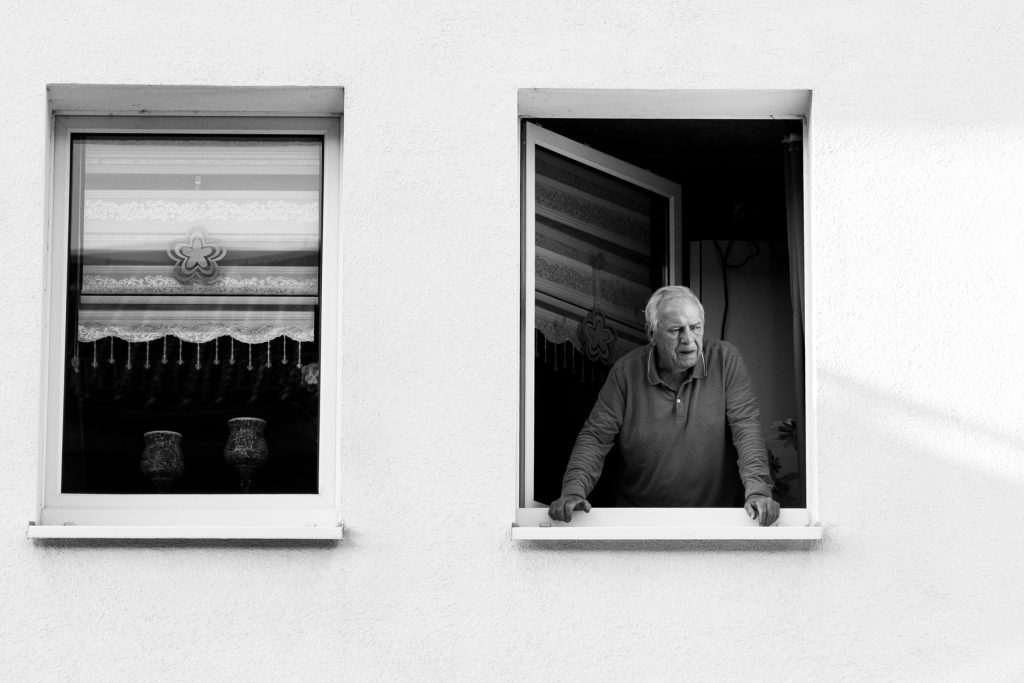
The Quiet Rise
An elderly resident watches from his window as a right-wing march passes through the streets of Demmin Germany The town historically linked to far-right commemorations has increasingly become a flashpoint for counterdemonstrations by anti-fascist groups Public reactions in Demmin vary widely with many residents observing from the sidelines as political tensions unfold in their neighborhoods